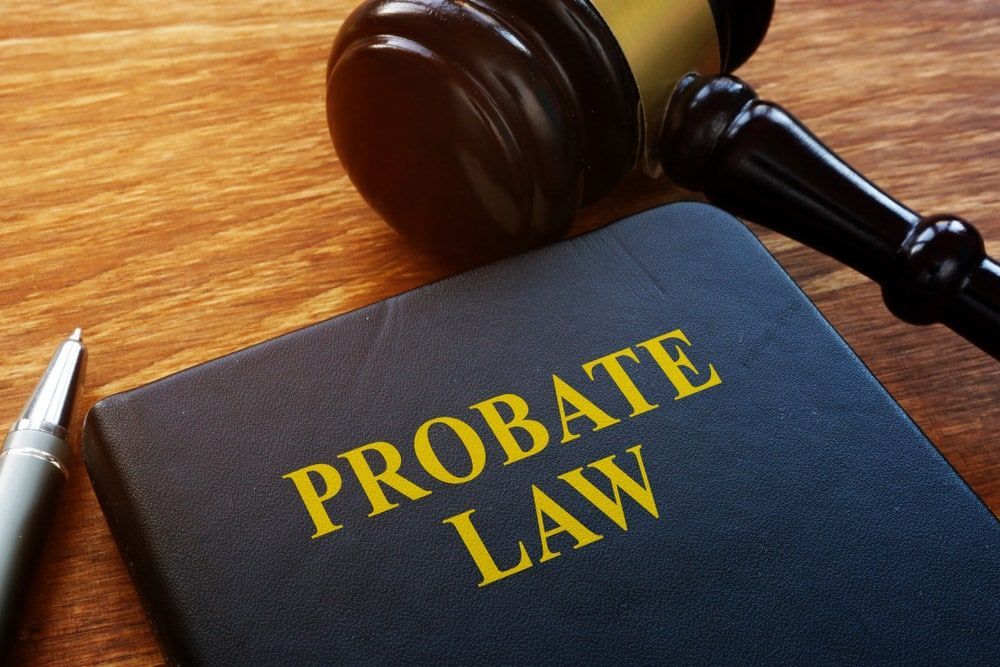What If The Will Is Ambiguous?
Have you been named in a will that doesn’t quite make sense? Unclear wording, missing details, or confusing instructions can turn an already emotional process into a stressful legal issue. If you’re an executor trying to administer a will or a beneficiary unsure about your entitlement, it’s important to understand what happens when a will is ambiguous — and how legal support can help clarify matters. In this blog, we’ll explore how ambiguous wills are interpreted, the legal risks involved, and what steps can be taken to resolve disputes with guidance from professionals.
What Makes a Will Ambiguous?
Ambiguity in a will arises when certain parts of the document can be interpreted in more than one way. While many wills are straightforward, others may be open to differing interpretations due to:
- Vague or unclear language.
- Contradictory clauses or instructions.
- Missing beneficiaries or asset details.
- Outdated information, such as deceased beneficiaries or sold properties.
For example, a clause like “I leave my house to my son” could become ambiguous if the deceased owned multiple properties. Similarly, a reference to “my grandchildren” without naming them may cause confusion in blended families.
When these types of uncertainties arise, the executor of the estate is placed in a difficult position. They may not know how to proceed without risking future legal action from disappointed beneficiaries.
Why Clarity in Wills Matters
Wills are meant to provide clear direction about how a person’s assets should be distributed. But when the wording is vague or confusing, it can lead to:
- Delays in administering the estate.
- Legal challenges from beneficiaries or excluded parties.
- Strained family relationships.
- Increased legal costs.
These issues can be particularly distressing during a time when families are grieving and simply want to honour the deceased’s wishes. In some cases, an ambiguous will can result in long, drawn-out legal battles that could have been avoided with clearer documentation.
Common Types of Ambiguity in Wills
While each situation is unique, most ambiguous wills fall into one of the following categories:
Latent Ambiguity
This occurs when a clause appears clear on its face but becomes unclear when applied to real-world circumstances. For instance, a clause leaving “my property at 123 Main Street” might become ambiguous if the person owned multiple properties on that street or sold the property before passing.
Patent Ambiguity
This type of ambiguity is obvious from the wording itself. A will that states “I give $10,000 to …” without naming a beneficiary has a clear drafting error that needs legal resolution.
Ambiguity Due to Changed Circumstances
Sometimes, circumstances change after the will was made — for example, assets are sold, or new family members are born — but the will hasn’t been updated. This can create confusion around the deceased’s intentions.
Conflicting Provisions
Some wills may include instructions that contradict each other, such as leaving the same asset to two different people. Resolving these conflicts often requires legal will interpretation by a legal professional.
How Courts Interpret Ambiguous Wills
In cases where a will is unclear, the Supreme Court of NSW may be asked to interpret the will under probate law. The primary goal of the court is to determine the intention of the deceased at the time the will was created.
To do this, the court may consider:
- The exact wording of the will.
- The overall context and structure of the document.
- Extrinsic evidence, such as letters, notes, or conversations that support the testator’s intentions.
- Past versions of the will, if available.
It’s important to note that the court does not “rewrite” the will. Instead, it interprets the language in a way that aligns with the presumed wishes of the deceased, using the available evidence and legal precedent.
When Legal Support Becomes Necessary
If you’re dealing with an ambiguous will, it’s strongly advised to seek legal advice. Whether you’re the executor, a beneficiary, or someone who believes they’ve been left out, a solicitor can:
- Review the will and assess potential issues.
- Advise on your legal rights and responsibilities.
- Guide you through the process of applying for probate.
- Represent you in estate disputes or court proceedings.
- Help mediate between parties to reach a fair resolution.
Engaging a solicitor early can help reduce misunderstandings and legal risks. In some cases, disputes can be resolved through clarification and negotiation without escalating to formal litigation.
Ambiguous Wills & Family Provision Claims
In some situations, ambiguity in a will leads to a person feeling that they have been unfairly treated or overlooked. This may give rise to a family provision claim, where an eligible person (such as a spouse, child, or dependent) seeks a larger share of the estate than they were provided.
These claims must usually be made within 12 months of the date of death, and courts will consider various factors, including the relationship between the deceased and the claimant, financial need, and the size of the estate.
An ambiguous will can complicate these claims, especially if the language used could suggest that the deceased intended to provide more (or less) than what was stated.
Executors Facing Conflicting Instructions
If you’ve been appointed as an executor and are facing an ambiguous clause, your role becomes particularly sensitive. You have a duty to administer the estate in accordance with the law and the testator’s wishes — but if those wishes aren’t clear, you may be personally liable if you make the wrong decision.
A solicitor can assist executors by:
- Helping interpret difficult clauses.
- Applying to the court for direction if needed.
- Managing communications with beneficiaries and creditors.
- Ensuring all decisions are legally compliant.
Executors should never feel pressured to act without guidance. Seeking professional support can protect both your legal standing and the integrity of the estate.
Need Help Interpreting a Will? Speak with Our Central Coast Solicitors Today
Ambiguous wills can cause confusion, conflict, and unnecessary emotional strain. Whether you’re trying to understand your rights as a beneficiary or navigate your duties as an executor, professional support can provide much-needed clarity.
At
Spencer Lawyers, we practise family law and estate matters on the Central Coast. Our team can assist with interpreting wills, resolving estate disputes, and protecting your legal interests with a clear and practical approach.
Contact us today.
















